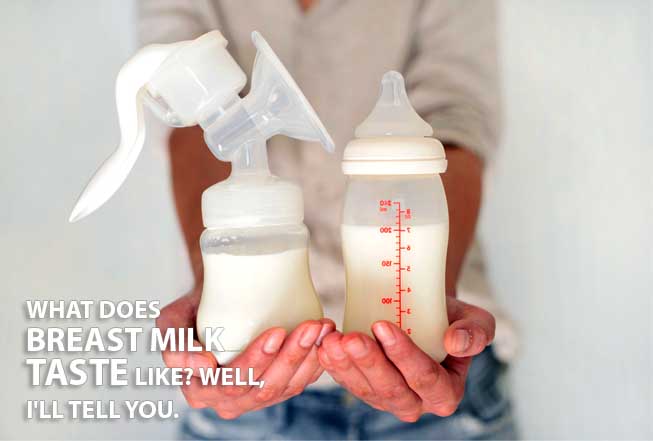After a difficult year, many people around the world are finally celebrating the festive season with more joy and hope. For many, it will also be the first time they see their extended families and loved ones in over a year. Family gatherings often involve indulging in food and drink. However, if you are breastfeeding your baby, there are some foods that you should be cautious of consuming.
स्तनपान कराने के दौरान बचने के लिए 17 खाद्य पदार्थ
The key to a good breastfeeding diet is to have a nutritious and healthy meal plan. New mothers who have been careful about what they eat during pregnancy can now relax and eat almost anything, as long as it is consumed in moderation. This is because a newborn baby’s diet is still entirely dependent on their mother’s milk. Therefore, it is important for mothers to eat meals that are rich in nutrients, vitamins, and minerals such as iron, calcium, potassium, Vitamin A, and Vitamin D.
It is important to note that the following foods should be consumed in small amounts while breastfeeding:
What does breast milk taste like? Well, I’ll tell you.
Foods and drinks containing alcohol and caffeine should be kept to a minimum. Alcohol, in particular, can potentially harm an infant’s development, growth, and sleep patterns even after waiting for two to three hours after consuming it. As for caffeine, while it is safer than alcohol, it is recommended that nursing mothers limit their intake to about 300 milligrams per day.
Chocolate can be included in the diet, as long as it is consumed in small quantities. This is because chocolate contains theobromine, which is a stimulant, and there is a small possibility of it leading to a breastfed infant being restless and fussy.
स्तनपान के दौरान खाने-पीने से बचें
Stress-producing and high-calorie foods should be avoided. Carbonated beverages, packaged fruit juices with excess sugar, peppermint or gums, salad dressings with high sodium should be avoided. Processed foods are quick and easy to prepare, especially when you have a baby. However, these foods contain preservatives and additives that are toxic for the baby, which should be avoided.
There are a few foods that breastfeeding women should avoid or consume in moderation:
-
शराब: Alcohol can pass through breast milk and potentially harm an infant’s development, growth, and sleep patterns. It’s recommended that breastfeeding women avoid alcohol or limit their intake.
-
कैफीन: Caffeine can also pass through breast milk and may cause a breastfed infant to be restless and fussy. It’s recommended that breastfeeding women limit their caffeine intake to about 300 milligrams per day.
-
मछली: Some types of fish, such as swordfish, shark, tilefish and king mackerel, have high levels of mercury and should be avoided.
-
Some herbs: Some herbs such as sage, peppermint, parsley, and thyme can decrease milk supply.
-
High-mercury seafood: Fish such as swordfish, shark, king mackerel, and tilefish should be avoided because they contain high levels of mercury.
-
High-sodium foods: Foods with high sodium content such as processed foods and fast foods can cause dehydration and should be avoided as much as possible.
-
High-sugar fruits juices: Packaged fruit juices with excess sugar should be avoided as they can cause an upset stomach to the baby.
-
Some over-the-counter medications: Certain over-the-counter medications such as ibuprofen and naproxen should be avoided.
-
Gassy foods: Some gassy foods such as broccoli, cauliflower, beans, and lentils can cause colic-like symptoms in some babies.
-
Dairy products: Some babies may have a lactose intolerance or a cow’s milk protein allergy, so breastfeeding mothers should watch out for symptoms such as eczema, colic, or diarrhoea in their babies and avoid consuming dairy products if needed.
-
Citrus fruits: Some babies may be sensitive to acidic foods, so breastfeeding mothers should avoid consuming citrus fruits such as oranges, lemons, and grapefruits if their baby shows signs of discomfort.
-
Certain spices: Some spices such as cumin, fenugreek, and fennel can increase milk supply, but they can also cause colic-like symptoms in some babies.
-
कृत्रिम मिठास: Some artificial sweeteners such as aspartame, saccharin, and sucralose can pass through breast milk and may cause upset stomach or other problems in the baby.
-
High-mercury fish: Fish such as tuna and swordfish should be avoided because they contain high levels of mercury.
-
Processed food: Processed foods are high in salt, sugar, and artificial ingredients which can cause discomfort for the baby.
Again, it’s important to note that these are general guidelines and it’s best to consult your healthcare provider for personalized advice based on your specific situation. Additionally, it’s important to listen to your baby’s cues and monitor any symptoms they may have after you consume certain foods.



